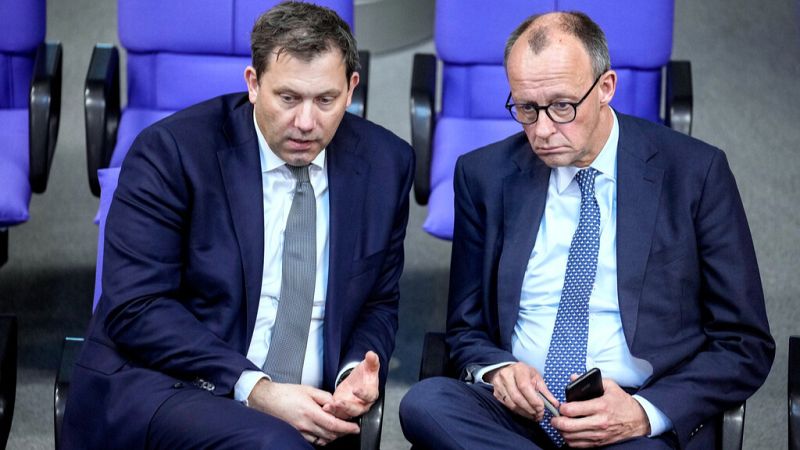Germany's Major Parties Strike Historic Debt Deal to Boost Defence Spending

Following extensive discussions, Germany’s major political parties have reached an unprecedented agreement on a spending plan aimed at releasing several hundred billion euros for defense and infrastructure projects.
The proposal put forward by the centre-right Christian Democratic Union (CDU) along with the centre-left Social Democratic Party (SPD) suggests that defence expenditures exceeding 1% of Germany’s GDP would be excluded from the nation's constitutionally mandated "debt brake."
This plan would establish a special fund worth €500 billion to finance infrastructure initiatives beyond the regular budget for the upcoming ten years.
The Greens had considered blocking the agreement by refusing their backing unless they received assurances that the extra funds would exclusively go towards infrastructure projects instead of being used to fulfill the primary pledges made during both major parties' election campaigns.
To secure support from the Greens, CDU chief and likely Chancellor Friedrich Merz proposed redirecting €100 billion from the infrastructure fund into the Climate Transformation Fund. This fund is part of a long-term national budget designed to finance policies aimed at tackling climate change and promoting energy transitions.
Merz also admitted that the term "additional" would be included in the bill, which meets an important Green Party requirement: no current governmental initiatives can be funded with this extra money unless they surpass 10% of their designated budget.
This accord additionally broadens the interpretation of "defense," extending beyond what was initially proposed by both the SPD and the CDU platforms. It encompasses elements such as intelligence agencies, civilian defense measures, and support to nations under attack in defiance of global legal standards.
On Friday, Merz stated that the accord was "an acceptable, satisfactory outcome."
The package must still be approved by the Bundestag and secure a two-thirds majority in the upper house, known as the Bundesrat.
Should approval be granted, this proposal would represent a significant shift away from years of strict financial austerity measures in Germany. This move could potentially free up substantial funds, enabling increased defense expenditures and stimulating economic growth within the country.





